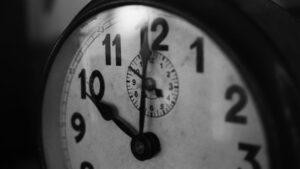With a winter storm around the corner many are running to the store to stock up on milk and bread but there are a few more things that should take priority when you’re at risk of a power outage.
- Build or restock your emergency preparedness kit, including a flashlight, batteries, cash, and first aid supplies.
- Make sure you have alternative charging methods for your phone or any device that requires power.
- Charge cell phones and any battery powered devices.
- Know where the manual release lever of your electric garage door opener is located and how to operate it.
- Keep your car’s gas tank full-gas stations rely on electricity to power their pumps.
- If you use your car to re-charge devices, do NOT keep the car running in a garage, partially enclosed space, or close to a home, this can lead to carbon monoxide poisoning.
- If you rely on anything that is battery-operated or power dependent like a medical device determine a back-up plan.
If you’re power does go out, don’t panic but be thoughtful of your actions.
- Only use flashlights for emergency lighting, candles can cause fires.
- Keep refrigerator and freezer doors closed. Most food requiring refrigeration can be kept safely in a closed refrigerator for several hours. An unopened refrigerator will keep food cold for about 4 hours. A full freezer will keep the temperature for about 48 hours.
- Turn off or disconnect appliances and other equipment in case of a momentary power “surge” that can damage computers and other devices. Consider adding surge protectors.
- If you are considering purchasing a generator for your home, consult an electrician or engineer before purchasing and installing.
- Only use generators away from your home and NEVER run a generator inside a home or garage, or connect it to your home’s electrical system.
Is staying warm your biggest concern? No worries! Follow these simple tips for a toasty weekend.
- Put on plenty of layers of warm clothing.
- Close rooms you won’t be using
- Pick a small room for the family to gather in
- Use duct tape and plastic to cover your windows and lock the heat in.
- Use towels to block any drafty doors or windows
- Never burn charcoal for heating or cooking indoors. Never use your oven as a source of heat.
After power has been restored be sure to throw away any food that has been exposed to temperatures greater than 40 degrees and restock your emergency kit with the necessary materials.
Last but not least, losing power doesn’t necessarily have to make for a miserable weekend, make it a fun experience! Enjoy the slower pace of life without all the extras, play a board game with your loved ones or take the time to read a good book. Losing power is jarring at first but with these tips you can be safe and make the best of it!
Let Us Put Our 58 Years Of Trial Experience Towards Your Case.




